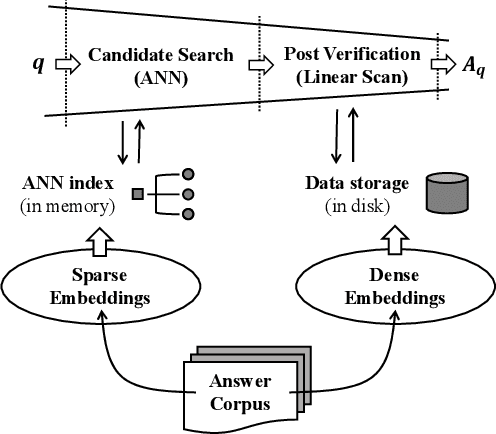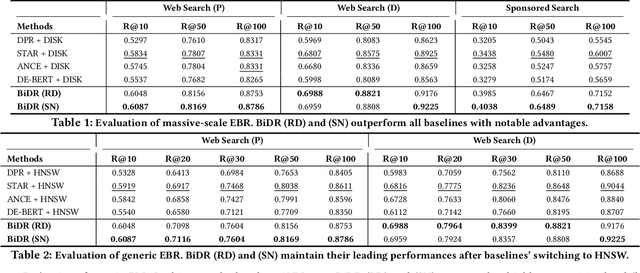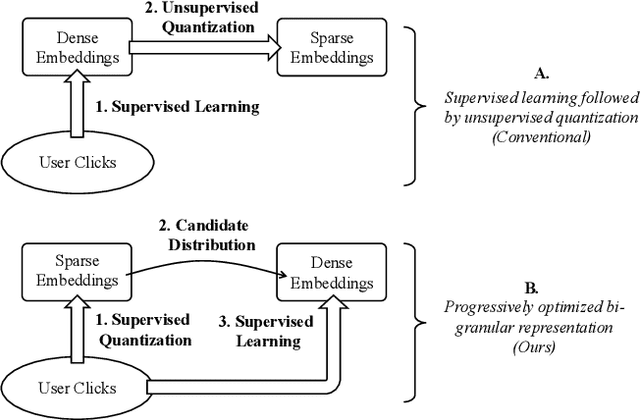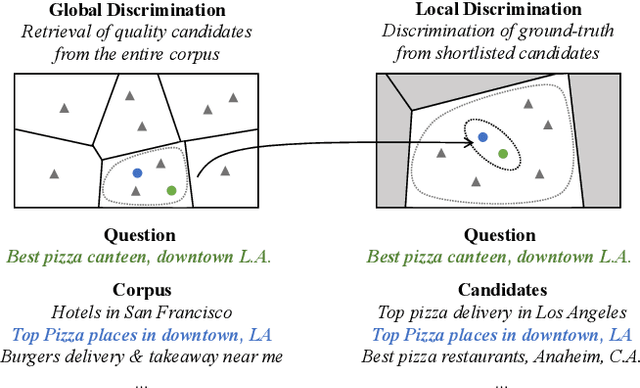Progressively Optimized Bi-Granular Document Representation for Scalable Embedding Based Retrieval
Paper and Code
Jan 14, 2022



Ad-hoc search calls for the selection of appropriate answers from a massive-scale corpus. Nowadays, the embedding-based retrieval (EBR) becomes a promising solution, where deep learning based document representation and ANN search techniques are allied to handle this task. However, a major challenge is that the ANN index can be too large to fit into memory, given the considerable size of answer corpus. In this work, we tackle this problem with Bi-Granular Document Representation, where the lightweight sparse embeddings are indexed and standby in memory for coarse-grained candidate search, and the heavyweight dense embeddings are hosted in disk for fine-grained post verification. For the best of retrieval accuracy, a Progressive Optimization framework is designed. The sparse embeddings are learned ahead for high-quality search of candidates. Conditioned on the candidate distribution induced by the sparse embeddings, the dense embeddings are continuously learned to optimize the discrimination of ground-truth from the shortlisted candidates. Besides, two techniques: the contrastive quantization and the locality-centric sampling are introduced for the learning of sparse and dense embeddings, which substantially contribute to their performances. Thanks to the above features, our method effectively handles massive-scale EBR with strong advantages in accuracy: with up to +4.3% recall gain on million-scale corpus, and up to +17.5% recall gain on billion-scale corpus. Besides, Our method is applied to a major sponsored search platform with substantial gains on revenue (+1.95%), Recall (+1.01%) and CTR (+0.49%).
 Add to Chrome
Add to Chrome Add to Firefox
Add to Firefox Add to Edge
Add to Edge